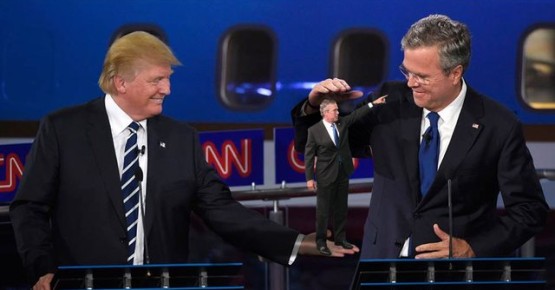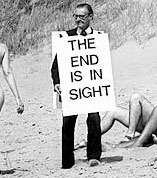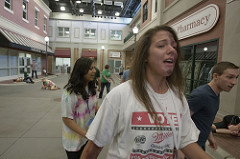Category Archives: Newsroom
 “I don’t agree with all of these, but this media narrative chart for shootings seems mostly right.
“I don’t agree with all of these, but this media narrative chart for shootings seems mostly right.
When I’m not careful, I have the male equivalent of “Resting Bitch Face“… which did foist upon me a greater degree of awareness of how I can come across. And that’s without the additional penalties women face.
Gustavo Arellano writes of Los Angeles’s long history against the “wrong” kinds of food, including and perhaps especially of the Mexican variety.
Lion’s piece on sock puppetry links to this really interesting story of the CIA using sock-puppets to spread pro-US propaganda.
The Washington Post’s Rick Noack’s piece on Germany’s fascination with the United States helps explain why Germany is one of the non-adversarial developed countries with rather high levels of disapproval for the US.
IUDs are the most effective method of birth control, and honestly one of the only forms of birth control I see making a serious dent in our abortion rates.
According to some, Houston doesn’t have zoning the same way that Louisiana doesn’t have counties. Not so, says Tory Gaddis.
When all is said and done, staunch partisanship and fringy political views appear to make for happier marriages.
Conspiracy theories are losing their stigma, and they have enormous traction when it comes to global warming. Which makes sense, as since people don’t want to believe it’s happening are likely to want to latch on to any reason to believe it won’t.
James Bowie looks at the University of North Dakota’s mascot crisis (they can’t use Sioux, but have no replacement), and tries to figure out what a suitable mascot might be. I agree that a lot of the schools that made the change chose pretty poorly.
I agree with this article from the Guardian, suggesting that social media’s ability to break down the wall between birth parents and adopted children, poses a lot of potential for trouble. All of the momentum in the US, though, has been towards unsealing the records.
Tips on sleeping with other people.
Greta Christina argues that being socially liberal but economically conservative isn’t enough. Some good points, though #4 and #5 assume a disagreement that may not exist, assuming that aggressive policing and the war on drugs are economically, rather than socially, conservative positions.
Patrick Clark argues that when figuring out where to live, we should look at where people are already moving instead of hypothetically nice places that for some reason people don’t seem to actually want (in as large numbers, anyway).
Why are people so fixated on the race when it comes to characters in video games? Like these white people?
With Jhanley and I both writing pieces about the GOP debates, I found a couple other links of interest:
1) Jonathan Last starts off with a quiz asking if you can tell Fox debate questions from CNBC ones. Both featured some tough questions, but Fox’s were couched in terms to give candidates an opportunity to respond, while CNBC’s were framed… differently:
So #1 was Megyn Kelly asking Ben Carson a hard question about whether he’s ready to be president based on his own statements. That’s pretty tough. Then look at #8, where Becky Quick wanted to ask Carson about homosexuality, but couldn’t figure out how to do it except by making his involvement with Costco about homosexuality because some “marketing study” said that Costco is “the number one gay-friendly brand in America.”
What does that phrase even mean? That gay people like to buy things from Costco? That gay people like to work for Costco? That Costco courts gay consumers and/or employees? The answer, of course, is that this word salad doesn’t mean anything. It’s a meaningless pretext for a blunt, open-ended question that assumes, as a baseline, that Ben Carson hates gay people.
Or take #2 where the moderator in question is John Harwood and he references unnamed “economic advisors” who said that Trump’s economic plan has “as much chance of cutting taxes that much without increasing the deficit as you would of flying away from that podium by flapping your arms around.” Like Quick, Harwood doesn’t have a specific, pointed question. He has anonymous straw men standing in the middle of a non-question holding a sign that says “Repblican Is Stoopid.”
2) David Harsanyi is sensitive to Republican concerns:
It was amusing watching journalists acting like this entire kerfuffle was all about the inability of Republicans to answer “tough questions” rather than decades of institutional favoritism. Or even more preposterously, that demanding to be treated with the same tenderness as Democrats meant that Republicans were undermining free speech in some way. A rallying cry from journalists could be heard across the Twitterverse, demanding someone, somewhere stand up and fight. If only these sentinels of principled reporting felt the same way every time some hackneyed hit piece rolled off the presses at The New York Times.
Demanding more favorable treatment is not tantamount to attacking the First Amendment. A candidate has no obligation to stand in front of moderators who misrepresent their position and answer useless but antagonistic questions. Not to mention, this is a primary, not a general election. Demands are nothing new. In 2007, Democrats boycotted a Fox News debate because they wanted to avoid an outlet that might pose challenging questions.
But ultimately says come on:
For starters, the slew of limitations proposed in the letter reportedly drafted by GOP attorney Ben Ginsberg have absolutely nothing to do with the bias of mainstream media moderators and everything to do with attempts to transform GOP debates into infomercials.
Why can’t a network film candidates looking at their notes? And why can’t they show shots of the audience? What does leaving the mic open have to do with dumb questions? Why does the GOP care if there are candidate-to-candidate questions asked during a candidates’ debate? None of these restrictions help with the fundamental problem of Harwood-style gotcha advocacy posing as journalism. A raucous argument with genuine questions and disagreements is somewhat useful and watchable (the first Fox debate featured all of these things).
Recently in the headlines is the GOP dissatisfaction with the CNBC debate. What’s a little unusual about this is that almost everybody agrees that the debates were poorly done. To pick one example, Tod Kelly says:
The worst part wasn’t that their questions were often insipid. (Though they were.)1 Or that CNBC’s version of what issues should be important to American voters was rather bizarrely skewed. (Though it was.)2 It wasn’t even the first question of the debate, where they asked the candidates to tell everyone what their greatest weakness was, then stressed that they were going to hold them to answering the question, and then just sat there watching as each candidate (save Trump) used the question to tell the world how much more awesome than everyone else they were.
No, the worst part was that CNBC had clearly made a decision to go full Candy Crowley, and hold the candidates’ feet to the fire when they answered with false statistics or histories. Which was a noble ambition, and might have led to a truly awesome debate, but for one tiny flaw: The moderators hadn’t taken the time to learn anything about the questions they were asking. When candidates pushed back, the moderators looked lost. When asked, the moderators couldn’t recall where they got their facts. When Becky Quick pushed Trump on a point, and he asked where she was getting her facts, she began shuffling through notes with a confused look on her face, and this exchange actually happened {…}
Vox’s Marcus Brauchli argues that it’s basically American Gladiators, and we’re entitled to it:
The audiences are coming — CNBC and other broadcasters have enjoyed record viewership for the debates — because it’s a red, white, and blue American television mashup of courtroom drama, where tough questions elicit surprise answers; team sport, where even favorite players stumble; and reality TV, where every participant has a unique narrative, moderators stoke controversy, and viewers have a say in who gets voted off the island.
The GOP and Republican Party, however, don’t agree. Which has been responded to as such:
The CNBC debate was a disaster, but fucking suck it up.
— Olivia Nuzzi (@Olivianuzzi) November 2, 2015
Here’s the thing: It’s not really up to the GOP to just “suck it up.” It is not their responsibility to entertain us. They have no democratic obligation to endure whatever silly little games CNBC chooses to go forward with for good ratings and entertaining television. The debates are not a benign service to us, nor a tribute to democracy. They exist for the benefit of the party. If they do not benefit the party, there is nothing wrong with them demanding debates that do benefit the party. I don’t mean “there’s nothing wrong” in the sense that “It’s undemocratic but they’re within their Constitutional Rights”… I mean that they are doing a disservice to nobody because there is no obligation, democratic or otherwise, to even have debates to begin with.
So no, they don’t have to “fucking suck it up.” This is their show.
Now, the GOP could well screw itself over by turning the debates into a prolonged advertisement. That would make it far less interesting to the networks themselves and viewers, and a lot of people would tune it all out. More importantly, it would deprive potential primary voters of a chance to assess how the candidates do with their feet to the fire. I’ve been paying attention to the debates with a particular eye to how well Marco Rubio – a relatively untested figure – handles it. And the debates are helpful for assessing how other candidates, such as Scott Walker and Jeb Bush, might perform in general election debates over which the GOP will have far less leverage (and in that case, rightfully so).
So there is a balance to be struck here. You know who is best qualified to strike that balance? The Republican Party, that’s who. The same applies to the Democratic Party, which in 2007 decided that it would not do Fox debates. The added exposure wasn’t in their interest. That was their call, and they certainly have more stake in making the right one than does any of us.
“Yeah, but the Democrats were right because Fox is hopelessly biased while none of the rest are except for reality’s well-known liberal bias.”
Even if we accept the notion that there is no bias in media towards the left, there is inarguably a bias in favor of an entertaining shitshow, which the GOP primaries might presently lend themselves to but not to which party officials must resign themselves to exacerbating. That requires making demands.
Whether I agree with the complaints and demands is rather beside the point. As it turns out, most of the “demands” are pretty reasonable:
- Opening and closing statements for each candidate that last at least 30 seconds
- Equal time, similarly substantive, and fair questions for each candidate
- No rapid-fire “lightening rounds” (sic) in which all the candidates are limited to a few words in answering questions
- More details further in advance on what the rules, subject, production, and format will be
- Veto power for candidates over graphic and bio information that will be displayed onscreen about them
The only one I consider objectionable is that last one, and even that one is debatable. Any demands greater than that would have required a degree of consensus that would have been hard to achieve among candidates with such contrary interests.
Another thing they’re planning on requiring is that the temperature be 67 degrees. The operating temperature by the third debate shouldn’t even be an issue. Is it outrageous that they demand not to be uncomfortable? Or is it the media’s god-given right to play Egon Spengler from Ghostbusters 2 while ratcheting up the temperature to see how the candidates respond and if they can get Marco Rubio to ask for a disqualifying drink of water.
Everybody comes into debates with different objectives. For the candidates and the parties, it’s about trying to win people over. For the voters, it’s about being informed or at least entertained. For the media, it’s about drawing viewers. Arguably, at least, the parties and candidates do have a democratic obligation to the voters to inform (or maybe entertain) them. But the media? Hurm.
CNBC charged *fifty* times their normal ad rate for the GOP debate, yet the media pretends they are the ones doing the GOP a favor. Come on.
— Josh Jordan (@NumbersMuncher) November 2, 2015
Sure, candidates don't have to let news orgs run debates. And news orgs don't have to give them hundreds of millions of dollars in free TV.
— Nick Confessore (@nickconfessore) November 2, 2015
“Dance for us, clown. Or as journalists we will boycott the presidential primary of one of the two major parties. Because journalism.”
As a practical matter, climate change policy and resource exploitation policy should not be so closely entwined that we decline to build Keystone XL or leave oil (and money) in the ground. The goal should be to reduce our need for oil rather than the supply (on which our effect is limited.
MIT’s free online classes now have a pathway to a degree!
California has become a right to dry state! It’s a bit of a dilemma for libertarian-types as it pits ownership against contracts. I fall in favor of the former and consider it perfectly appropriate for California to say “Home ownership has to include this as a right and privilege.”… but I’m not a very good libertarian.
The Bureau of Land Management may be instigating a huge land grab on the Red River.
Some Hungarians want you to know that they are sorry about their Prime Minister.
“Are we over American airspace yet?” (They were, and an American was born.)
The most educated immigrants seem to be coming from Africa.
Sometimes I miss the Mountain West. Meanwhile, in New Jersey… and Europe!
“A former meerkat expert at London Zoo has been ordered to pay compensation to a monkey handler she attacked with a wine glass in a love spat over a llama-keeper.” –Sacramento Bee
Video game voice actors are going on strike. Game companies don’t seem too worried.
But hasn’t this guy heard of the NJ/PA minimum wage experiment?
Relatedly, regardless of the merits, that a majority of Republicans in Pennsylvania support raising the minimum wage ought to scare the crap out of the GOP.
This reminds me of when all of the guns were out to explain that there was no good reason to object to a black stormtrooper when in fact there was almost nobody actually objecting to a black stormtrooper. Except about sports.
Subversive graffiti on the set of Homeland.
Sean Davis looks at some myths about the state of gun control.
Here’s a way to potentially stop some mass shootings, but it’s pretty hard.
Malcolm Gladwell looks at school shootings as a contagion. Elizabeth Winkler takes objection.
Spencer Stone, one of the heroes of the French Terror attempt, was stabbed in an altercation in Sacramento. Sketches of the culprits have been released.Matt Yglesias argues that despite appearances to the contrary, the Democratic Party is in trouble.
According to Nima Sanandaji, Sweden’s immigration strategy is reaching a breaking point.
Bangaladesh is about the get the green light on golden rice.
How the Egg McMuffin came to be. Relatedly, while I think there is something to this, I really want my all-day breakfast sandwiches.
Is it outlandish to believe that Chinese drivers are intentionally killing pedestrians due to incentives? It may have been a thing in Texas (sort of).
There was some “No more Californians” please sentiment in Deseret and Arapaho when I lived in each, but… Portland?
 “One of those wrecked ships carried a cat, and the crew went back to save it. I made the cat the feature of my story, while the other reporters failed to mention the cat, and were called down by their city editors for being beaten. The next time there was a shipwreck there was no cat; but the other ship news reporters did not wish to take chances, and put the cat in. I wrote a true report, leaving out the cat, and then I was severely chided for being beaten. Now when there is a shipwreck all of us always put in a cat.”
“One of those wrecked ships carried a cat, and the crew went back to save it. I made the cat the feature of my story, while the other reporters failed to mention the cat, and were called down by their city editors for being beaten. The next time there was a shipwreck there was no cat; but the other ship news reporters did not wish to take chances, and put the cat in. I wrote a true report, leaving out the cat, and then I was severely chided for being beaten. Now when there is a shipwreck all of us always put in a cat.”
Speaking of animals in the lost and found, here’s a nice story of a dog that went missing in Yellowstone National Park for 42 days before being found.
Not only is everyone else having trouble keeping up with rising rents in San Francisco, but the tech companies themselves are having trouble. All bleeding stops eventually, and that which cannot go on indefinitely ends eventually.
Spinal chord simulation and robotic exoskeletons.
 Emmanuel Todd comes to bury Charlie Hebdo deceased, not praise them.
Emmanuel Todd comes to bury Charlie Hebdo deceased, not praise them.
A French weatherman is canned after expressing doubts about climate change.
Scientists have totally found an alien satellite! Well, probably not.
Self-driving cars are coming to Canada!
Yikes. A school district in Florida is paying out a six-figure settlement due to some hypnotism gone very wrong.
While using racial slurs is wrong in most contexts, I kind of think this might be an exception.
An obstetrician and abortion doctor – previously sanctioned for performing home abortions – was found with a bunch of fetuses in his car.
Federal prosecutors are going after a Fox contributor for falsely claiming having worked for the CIA.
Hillary Clinton is apparently getting taller. I was actually under the impression that Rubio was shorter than 5’10″… roughly Paul’s height, actually. Am I wrong or has he grown taller, too?
Sometimes Jeb is cool in spite of himself. But seriously, don’t mess with the SEC.
Harry Enten is giving Ted Cruz another look. Cruz wouldn’t have much of a chance in most elections, but this is an unusual one. I think there’s a non-trivial chance that the nomination is going to come down to two Cuban-American candidates. Tom Coburn probably isn’t happy about this prospect.
For several Republican candidates, we’re approaching game time.
It looks like Justin Trudeau is about to be prime minister. Richard Nixon called it when Justin was in diapers.
Now that they no longer issue them, Maryland may take back its confederate license plates.
A surprisingly touching essay by The Voice of Richard Nixon. (or, more specifically, @dick_nixon).
David Bell looks at some myths about the French Revolution. Some are more interesting than others, but #2 was the most interesting to me.
Also interesting is the degree to which contraband smuggling might have been a cause of the French Revolution.
These 14,000 images of the French Revolution make me wish I was fluent in French.
NASA says we may be needing to say our goodbyes to Louisiana and Galveston.
Jason Kuznicki writers about how modern intellectual property law makes us feudal tenants
“All major U. S. cities north of the Mason-Dixon line and east of the Mississippi have decreased in population from their peaks nearly 60 years ago.” (Except NYC and state capitals.)
Meltdown-Proof nuclear reactors? You have my attention…
Joe Carter asks why Black and Hispanic Evangelicals are more favorable to prosperity gospel.
The Dark, Haunted Joe Biden Center. “This table was just full of old alarm clocks and printed rules for the Biden Center.” I don’t know if I’d rather go there or to Dismaland.It seems that 2013 was the first year that primary care physicians brought in more net revenue to hospitals than specialists. (PDF)
It seems like eventually we’re going to have to figure out where Asians fit in to the “whiteness” of tech.
Is excessive regulation of daycare hurting women in the workplace?
Uh, oh… are we looking at Peak Wind?
Freddie Armstrong writes about Dooce’s semi-retirement and the possible end of the mommyblogger.
Anne Continetti of the Weekly Standard and Anya Kamenetz of NPR look at a new book suggesting that the US is failing its brightest kids.
Social media and modern sensibilities: Unfriending is workplace bullying and sending too many follow requests harassment.
Credit where due: Alan Sepinwall admits when he is wrong, and a long time back he was very wrong about the prospects of a new show called CSI.
Zach Barnett argues that college football really needs to do something about the length of its games. It seems to me that keeping the clock running on first downs up to the last two minutes of each half would be a good place to start.
Kerry Howley explains the self-absorption of our response to the death of Cecil.
Lyft is going country, but Nashville is apparently especially susceptible to a robot invasion, coming to seize their jobs.
Tent cities in Tennessee: Should Nashville accept tent cities as a short-term approach to a lack of affordable housing? {via Chris}
Jack Hitt is not a fan of Paul Theroux’s new book on the South.
Utah is apparently adding a pretty significant “Doctor tax.”
Jews have gradually shifted in the public mind to being more white than not, but Gil Steinlauf wants that play called back.
The Economist reports that the “model minorities” may be losing patience.
In the UK, Mohammed Umar Farooq read a book about terrorism, which was declared a red flag that he might be a terrorist.
The Telegraphy denounces the EU as an oligarchy and says it’s time for the UK to leave.
No Offence causes offense.
Explained from the inside, how Jeremy Corbyn rocked the Labour Party.
It sucks when Americans don’t like your ethnic food and apparently when they do.
Oregon put that to rest, and in some ways the screaming seems even louder here as it was there. It was, of course, immediate. So, too, were the pre-emptive calls “not to politicize it” which I don’t disagree with but were pretty blatantly opportunistic (often accompanied by explanations for why this is why no zone needs to be a gun free zone and a sudden and disingenuous concern for mental health). I’ve past the point where I am inclined to tut-tut about politicizing it. I would prefer that we wait at least 24 hours to absorb what happened and learn what actually happened, but that’s too much to ask for.
Pro gun control people have lost all patience with the “Don’t politicize” argument, and I can actually understand where they’re coming from. As said, a lot of it is opportunistic. Just push back the talk date until the next shooting happens, then push back the talk date again, all the while talking about (or having surrogates talk about) the need for concealed and open carry. I will confess at one point my beliefs about taste and decorum may have been influenced by political self-interest. But after Newtown, I have been convinced that it is indeed an ineffective strategy and even possibly a counterproductive one for gun control advocates… and I still wish they wouldn’t do it. There may still be self-interest involved, but of the more personal self-interest of curiously not liking to be called pro-massacre and a desire after each and every tragedy not to end up in proverbial screaming matches with my friends. But as far as moving the needle is concerned, they seem destined to lose and I consider that a good thing because they deserve to lose.Being on the anti-gun control side of the argument in discussions like this is a case of trying to hit a moving target. Informed from the start that we can’t even pretend to care about this blood and death unless we are on board with their program. But when you point out that the proposed gun control measures would likely have no effect on the incident in question, you’re told that it isn’t actually about this blood and death – this blood and death that absolutely necessitates that we must argue about this before the facts are in and the bodies are cold – is not the point. It’s about shootings in general.
Except that almost none of the mass shootings that make the headlines are particularly vulnerable to gun control. They’re typically people that have their guns legally, or people capable of bypassing all but the most restrictive anti-gun laws. If moderate gun control has an effect, it’s in reducing crimes of passion, crimes of opportunity, and various shades of manslaughter caused more by recklessness than ill-intent but leaving innocent people dead all the same. And suicides. I’m not going to commit to moderate gun control having any positive effect in reducing gun crimes (though I would suicides and accidental deaths), but this is a misdirection.It’s a misdirection that seems to be born in a theory that isn’t bearing out. The idea, at some point, was that nobody will support gun control to save the lives of urban minority youths in Chicago. But if you use cases where the victims are white, then they will take notice. This seemed to almost work in the 90’s, but it’s a script that gun supporters just aren’t playing their part in. And I think that’s frustrating their opposition.
Especially frustrating to well-intentioned people on all sides is this: This is a subject on which there is very limited middle ground. If any. Especially when it comes to mass shootings. For gun control supporters, it leaves them in a position where they simultaneously assure gun rights advocates that nobody is talking about confiscation while endorsing actions abroad which involved a lot of confiscation and pointing to them as exemplars of the efficacy of gun control. For opponents, it means shrugging off changes that seem like “common sense” because they know the rallying for more gun control won’t really stop until the mass shootings do (if then) and the moderate steps won’t have much of an effect in taking down the biggest banner used by the other side.What measures will keep the guns out of the hands of these shooters that doesn’t also prevent most others from getting guns? Not just the Oregon shooter, but Newtown or Lafayette or Aurora? We could peer into their lives in search of mental illness or something, but the signs are not always obvious without hindsight and could be the sort of thing that prevents a lot of people from getting help. With theaters you could use metal detectors perhaps, if you’re willing to endure massive inconvenience for high-profile incidents that make up a relatively small proportion of deaths. Gun free zones are unlikely to have an effect on people unworried about dying or going to prison.
And you can say “It’s not about these specifically” but as long as these are a reason that we must talk about gun control, gun control needs to be connected to these events. And if you argue “Yes, gun homicides as a whole are down but mass shootings are up and so we have to take action” then the action should be related to mass shootings. If you wave the bloody shirt, you own the bloody shirt. Especially when, in my view, the increase in mass shootings is not unrelated to the publicity that they receive. So when I read arguments that pro-gun people need toThose are crappy reasons to actively oppose partial-measures that would do good on the margins. And I try not to let that influence my thinking too much. There is, however, still the case to be made that the partial-measures would actually do good on the margins, and when the arguments are often made in a bundle with allusions to other countries that have more radical measures in place and rhetoric that demands more radical measures, it’s not a winning argument to me, but those are the arguments made in the heat of the moment and tend to push me further back on to my side of the line. Not to the point that I will reflexively oppose everything, but a point where calling for “common ground” rings hollow.
Which leaves us where? The Democratic Party thinks it has found a winning issue. The Republican Party is crossing their fingers that they do with an eye towards Ohio and Pennsylvania. This is largely a replay of the 1990’s and the school shootings that seemed for a time to make it look like the issue was going to be an albatross around the GOP’s neck. Until the 2000 election approached, and the Democrats looked at the states in play and realized it wasn’t. Maybe things have changed because the NRA has overplayed its hand, or maybe not.In the interim, it takes a lot of work for me not to see the tirades of the would-be gun controllers as a form of hysteria. A view that I am not entirely comfortable with, though which I naturally find less offensive than their belief that I don’t care about dead people unless I get with their program. They ask “So you are just content to let these things happen?” Well, I wouldn’t say that, but I stipulate in their way of seeing things (I am with the program or I am not) I can see why they do. And to some extent… yes. We accept death every day. We try to minimize it where we can easily do so, but always in balance with other considerations. That can be called being pro-massacre, or being an adult.
And that, sadly, is where we are.
 Gynecological Gymnastics… from Outer Space.
Gynecological Gymnastics… from Outer Space.
A North Korean refugee wants to return to North Korea.
I do think that running for president does kinda sorta mean that you don’t get to have your name trademarked in quite the same way you did when you were a business brand.
This is a really bad idea.
Police chase, Kansas style! (It involves officers unloading on a combine being driven away by the assailant)
I thought we had a bad moving experience, but… could have been worse.
In Australia, the 11 year old totally wanted, so the 21 year old goes free.
Shell is pulling up its stakes and leaving the Alaskan Arctic.
Thanks to plenty of win and subsidies, Texas wind power producers were paying people to use their electricity.
R-Street criticizes a plan to charge solar customers for energy they’re not using. I could actually imagine it being a defensible policy, but the forces behind the policy certainly raise questions.
An East Tennessee police officer is suspended after refusing to shoot a skunk that needed to be shot (and tested for rabies).
If these policies had been in place at the outset, I’d likely still be smoking. {More}
“The phrase is ‘the death of the middle.’ We’re getting to a place where there’s going to be too much dramatic content. The best will always be bought and continue to rise in price. In the U.S., there are 62 buyers for drama. There is a lot of demand for the best, but that middle goes away or drowns. It’s the best or the cheap and cheerful.”
Scott Sumner writes of how the Chinese are apparently abandoning the city to return to the country, and how there may be no housing bubble there.
In Alternet, psychotherapist William Doherty questions his own historic assumptions and wonders if we approach divorce too selfishly.












